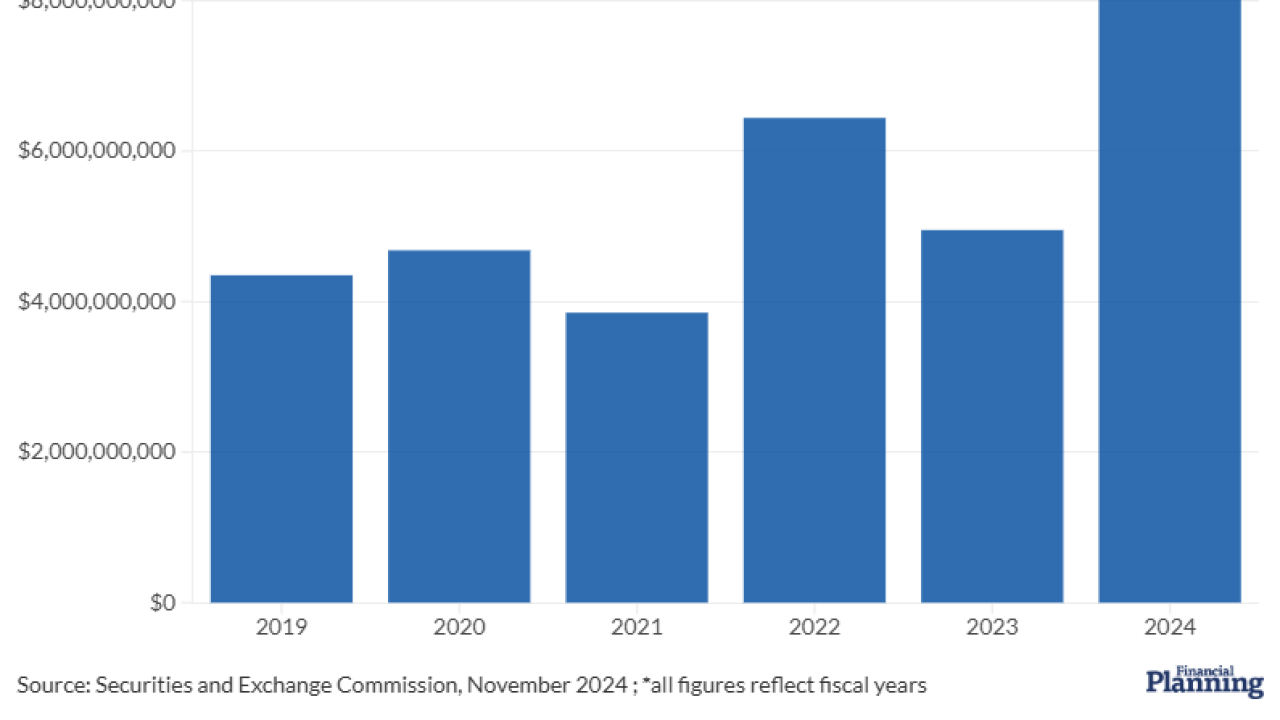Merrill Lynch Canada's decision to sell its $2.8 billion in Canadian mutual fund assets to competitor Canadian Imperial Bank of Commerce may have been based on research that shows the wealth market in Canada is shrinking.
Late last month CIBC announced that it would acquire Merrill Lynch Canada's asset management, retail brokerage and securities services businesses for its brokerage unit, CIBC Wood Gundy, for between $475 million and $650 million (all numbers in U.S. dollars), with the final purchase price expected to be between $500 and $600 million.
The deal, which includes Merrill Lynch Canada's 41 proprietary funds with $2.8 billion in assets, is expected to close by the end of January. The combined entity, which will operate under the CIBC Wood Gundy name, will have more than $85 billion in under management including almost $18 billion in mutual fund assets. It will also give CIBC a retail sales force of more than 1,600 financial consultants.
While Merrill Lynch is widely perceived as making the deal to cut its losses, the company considered data that indicates that the number of high-net-worth Canadian investors is shrinking, as well as that an increased number of those investors are investing directly in U.S. funds, according to a source familiar with the deal, who spoke on a condition of anonymity.
For CIBC the purchase further entrenches its position as one of the largest banked-owned mutual fund complexes in Canada. And it helps the firm compete in the wealth management business against its big rivals. Royal Bank of Canada has about $20.8 billion in mutual fund assets and TD Bank has $18.3 billion, said Donald Chu, a financial institutions analyst with Standard & Poor's in Toronto.
According to Chu, Merrill had good reason to unload its retail business in Canada. "For Merrill, the deal was purely financial," said Chu. "That business wasn't meeting [its] marks internally."
A Merrill spokesman said the firm is optimistic about its remaining Canadian businesses--corporate and institutional accounts and investment banking.
Actions Speak Louder Than Words
However, Merrill's sale of its mutual funds would suggest a pessimistic view of the Canadian retail business. In addition to the data about a shrinking wealth market, it's not clear that Merrill really wanted to hold onto the corporate and institutional accounts. CIBC was only interested in the retail business, the Merrill spokesman confirmed.
Still, the deal looks good for CIBC, according to Chu. The firm has wanted to expand its wealth management business and this deal gives the bank another huge boost. Last month, CIBC acquired TAL Global Asset Management, which includes Talvest Fund Management, an investment manager with approximately $2.5 billion under management.
The Merrill acquisition gives CIBC one of the largest networks of financial consultants of any private client brokerage organization in Canada, but the sweetest part of the deal for the bank is the mutual fund business, Chu said.
"I'd say there's a jewel in this whole transaction," he said. "Everyone's talking about the number of brokers and total assets under management, but the real jewel is the [$2.8 billion] in mutual funds that are being sold within the package."
Other Factors
There are other reasons why the acquisition makes sense for CIBC. The $500 million to $600 million price tag is about half of what Merrill paid for the business in 1998.
How CIBC will incorporate the Merrill funds into its own lineup is not yet clear, said Mary Lou Frazer, a spokeswoman for CIBC.





